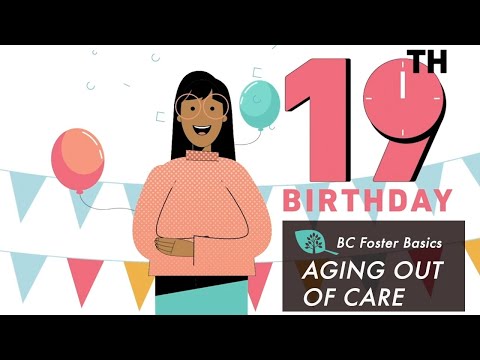Supporting Youth Transitioning Out of Foster Care: Essential Skills and Resources
In this insightful video, former foster youth and professionals outline the essential skills and resources needed to support young people as they transition out of the foster care system. This transition, often occurring at age 19, can be daunting as it involves leaving behind the support systems and safety nets they’ve relied on. Here’s a breakdown of the key topics covered:
1. The Transition Challenge
When youth turn 19 and age out of the foster care system, they often lose access to vital support systems. This includes:
- Loss of Support Systems: At age 19, foster youth often lose access to foster families, social workers, and secure housing, leading to feelings of anxiety and vulnerability.
- Importance of Early Preparation: To ensure a smooth transition, youth need support and preparation well before their 19th birthday, as lack of preparation can lead to homelessness or financial instability.
2. Core Life Skills for Independence
The video highlights several fundamental “adulting” skills that are essential for independent living:
- Budgeting and Financial Management: Youth need guidance on setting up bank accounts, budgeting, managing expenses, and saving for future needs.
- Cooking and Nutrition: Learning basic cooking skills and understanding healthy nutrition enables youth to maintain a balanced diet affordably.
- Health and Well-being: Navigating health systems, finding doctors, and acquiring necessary documents (such as passports or IDs) help youth manage their personal well-being.
- Education and Employment: Guidance on job applications, college enrollment, and professional conduct are essential as youth enter work or educational settings.
- Housing Knowledge: Understanding how to search for housing, knowing tenant rights, signing leases, and being a responsible tenant can provide stability.
- Conflict Resolution: Skills for managing conflicts with landlords, employers, or peers help foster youth maintain healthy relationships and self-advocacy.
3. Building Social Connections
- Support Networks: It’s crucial that every youth has connections with family, community members, or supportive adults who believe in them and can offer long-term emotional support. This kind of network can be instrumental as they navigate life’s challenges independently.
4. Self-Advocacy and Community Participation
Foster youth need to understand their rights and responsibilities as independent young adults, along with effective methods for advocating for themselves in their communities.
5. Programs and Resources for Foster Youth
A variety of programs and resources exist to support foster youth as they transition to independence. These include:
- AgedOut.com: An online platform offering tutorials, challenges, and incentives to teach foster youth essential skills for independence.
- Federation of BC Youth in Care Networks: This organization connects foster youth with a community of individuals who share similar experiences and offers support for ages 14-24.
- Ministry of Children and Family Development: The Ministry provides life skills programs across British Columbia, supporting youth as they prepare to reach adulthood.
6. Foster Parents’ Role in Transition
Foster parents play an essential role in teaching life skills and instilling confidence in foster youth. Consistent, supportive relationships and early life-skills training can significantly increase a foster youth’s chance of successful transition.
- Preparation and Guidance: Foster parents must help youth build life skills, offer consistent emotional support, and foster a sense of belief in their abilities, ultimately empowering them for adult responsibilities.
7. Conclusion: Building Confidence Through Preparation
Proper planning, guidance, and connection to available resources can transform a youth’s apprehension about independence into optimism and self-reliance. By equipping them with essential life skills, foster parents, social workers, and community organizations can help foster youth confidently step into adulthood.
This video serves as a powerful reminder of the critical role that preparation and support play in empowering foster youth as they navigate the complexities of adult life.
Video Source: Watch the full video on YouTube
Search Terms: life skills training, housing stability, post-foster care resources, financial independence, transition planning, social services navigation, independent living programs, self-empowerment strategies, emotional resilience, support networks for youth, career counseling, health insurance access, tenant rights education, mentorship programs, youth advocacy groups, community re-integration, trauma-informed support, personal development coaching, holistic transition support, peer mentorship initiatives


Leave a Reply